detail profile roberto tagliavini
Peran Yang Di Mainkan Roberto Tagliavini
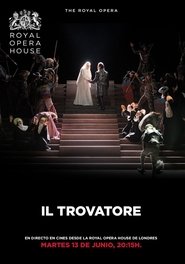 Passions run high as Manrico and...
Passions run high as Manrico and...The Royal Opera House: Il Trovatore 2023
Passions run high as Manrico and the Count di Luna compete for the affections of Leonora. Little do they know, Manrico’s mother Azucena has been keeping a terrible secret for decades. Soon a curse from the past will rise up from the ashes with devastating implications for them all. Starring Rachel Willis-Sørensen, Yusif Eyvazov, Gregory Kunde, Ludovic Tézier and Jamie Barton, Adele Thomas’s energetic staging sets Verdi’s tale in a Hieronymus Bosch-inspired universe of medieval superstition. On the podium, Antonio Pappano conducts Verdi’s dramatic score, featuring the famous Anvil chorus.
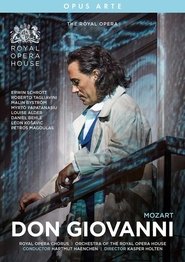 New 2019 version of the Kasper Holtens 2014...
New 2019 version of the Kasper Holtens 2014...Don Giovanni - The Royal Opera House 2019
New 2019 version of the Kasper Holten’s 2014 production of Don Giovanni for the Royal Opera offers a glimpse inside the mind of one of opera’s most notorious seducers. With a spectacular revolving set by award winning designer Es Devlin, ingenious video projections by Luke Halls, and an ‘ideal cast on world beating form’ (The Independent), this staging brings Mozart’s dazzling score to life, in all its wit, glamour, and darkness.
 No one better described the halfstarved...
No one better described the halfstarved...Puccini: La Bohème 2017
No one better described the half-starved, struggling artists than Murger in his Scènes de la Vie de Bohème: artists ready to burn a manuscript to try to keep warm yet,in an era of triumphant bourgeois materialism, dreaming of another existence. Taking up these scenes of Bohemian life, Puccini offers us a heart-breaking love story and some of the most beautiful music in the history of opera in the story of the poet Rodolfo and fragile Mimi. The staging of this new production has been entrusted to Claus Guth who sets the drama in a future devoid of hope in which love and art become the sole means of transcendence.
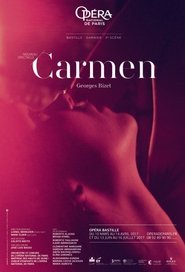 With a devilish sway of the...
With a devilish sway of the...Bizet: Carmen 2017
With a devilish sway of the hips and a hint of Andalusian flair, Carmen, the beautiful cigar-maker sets her sights on a soldier: Don José. Fate will do the rest. Composed to a libretto by Meilhac and Halévy based on Prosper Mérimée’s novella, the opera exploded the boundaries between tragedy and comedy with a modernity that caused a scandal at the time. Can we kill the one we love with love? The fiery beauty of Bizet’s music, where one unforgettable aria follows another, has worked year in, year out to make it the world’s most performed opera.
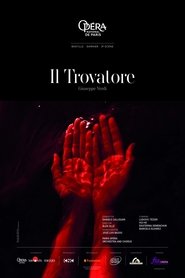 Alex Oll one of the famous...
Alex Oll one of the famous...Verdi: Il Trovatore 2016
Alex Ollé, one of the famous La Fura dels Baus, recreates the conflict and places principal protagonists in clear, transforming set with supporting lighting – facing all primal emotions directly, with no place to hide. The set design (smart and impressive solution of scenography by Alfons Flores) encased in mirrors and accented with silently moving columns, creating cloister, battlefield, cemetery or castle with minimalistic hints (impressive lighting design by Urs Schönebaum), gives us the opportunity to keep full attention on the vocal performance of main characters.
 The grand scale and magnificent acoustics...
The grand scale and magnificent acoustics...Aida - Arena di Verona 2013
The grand scale and magnificent acoustics of the Roman arena in Verona are ideally suited to the pageantry of Verdi's Egyptian opera, presented here in a staging that is true to the original 1913 production, framed by obelisks and sphinxes and filled with chorus and dancers. Chinese soprano Hui He has won international acclaim for her portrayal of the eponymous slave girl whose forbidden love for the war hero Radamés (Marco Berti, the experienced Verdi tenor) brings death to them both.
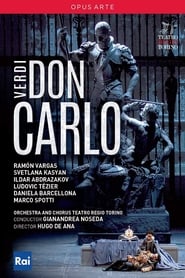 Teatro Regios 2013 revival of their highly...
Teatro Regios 2013 revival of their highly...Verdi: Don Carlo 2013
Teatro Regio’s 2013 revival of their highly successful 2006 production of Verdi’s Don Carlo celebrates the 40th anniversary of the theatre’s reopening in 1973. With traditional staging and lavish costume design, the production garnered high acclaim in the national and international press, with GB Opera commending the ‘sumptuous’ setting and French online music magazine ResMusica praising director Hugo de Ana’s decision to revive the show ‘in all its splendour’. Shown here in the four-act version, Don Carlo is the fascinating tale of father-son power struggles, adultery and love that borders on incest. The cast – under the powerful baton of Gianandrea Noseda – is headed by renowned Mexican tenor Ramón Vargas, and also features Ludovic Tézier, who has been hailed as ‘one of the best Verdian singers of our time’
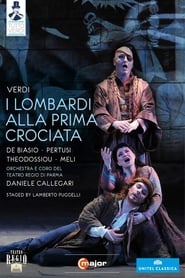 I Lombardi alla prima crociata The...
I Lombardi alla prima crociata The...I Lombardi alla prima crociata 2009
I Lombardi alla prima crociata (The Lombards on the First Crusade) was Verdi’s fourth opera and received its first performance at La Scala, Milan, in February 1843. The grandiloquent subject matter is fleshed-out with broad-brushed musical and dramatic effects and lavish choral scenes created a correspondingly impressive impact. A great success in Milan, it spread to the rest of Europe within a matter of only a few years.
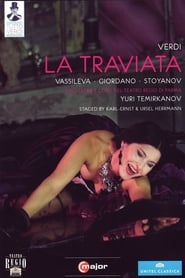 Part of Tutto Verdi series La...
Part of Tutto Verdi series La...Verdi: La Traviata (Teatro Regio di Parma) 2007
Part of Tutto Verdi series - La Traviata (2007) Parma. 'La traviata' ('The Fallen Woman') is an opera in three acts by Giuseppe Verdi set to an Italian libretto by Francesco Maria Piave. It is based on 'La dame aux Camélias' (1852), a play adapted from the novel by Alexandre Dumas, fils. The opera was originally titled 'Violetta', after the main character. It was first performed on 6 March 1853 at the La Fenice opera house in Venice. Piave and Verdi wanted to follow Dumas in giving the opera a contemporary setting, but the authorities at La Fenice insisted that it be set in the past, "c. 1700". It was not until the 1880s that the composer and librettist's original wishes were carried out and "realistic" productions were staged.

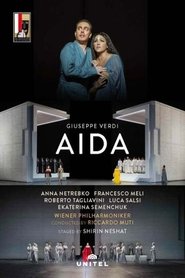
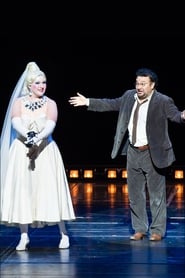

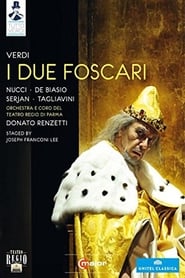 I due Foscari was Verdis sixth...
I due Foscari was Verdis sixth...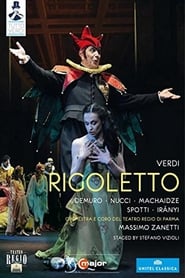 Live recording at Parma Verdi Festival 6...
Live recording at Parma Verdi Festival 6...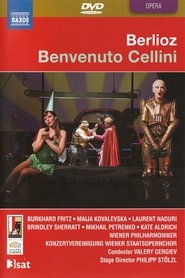 Live performance from Salzburg Festival Opera...
Live performance from Salzburg Festival Opera...